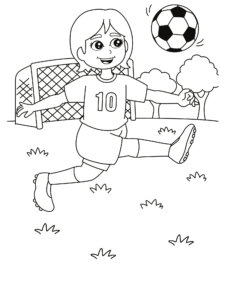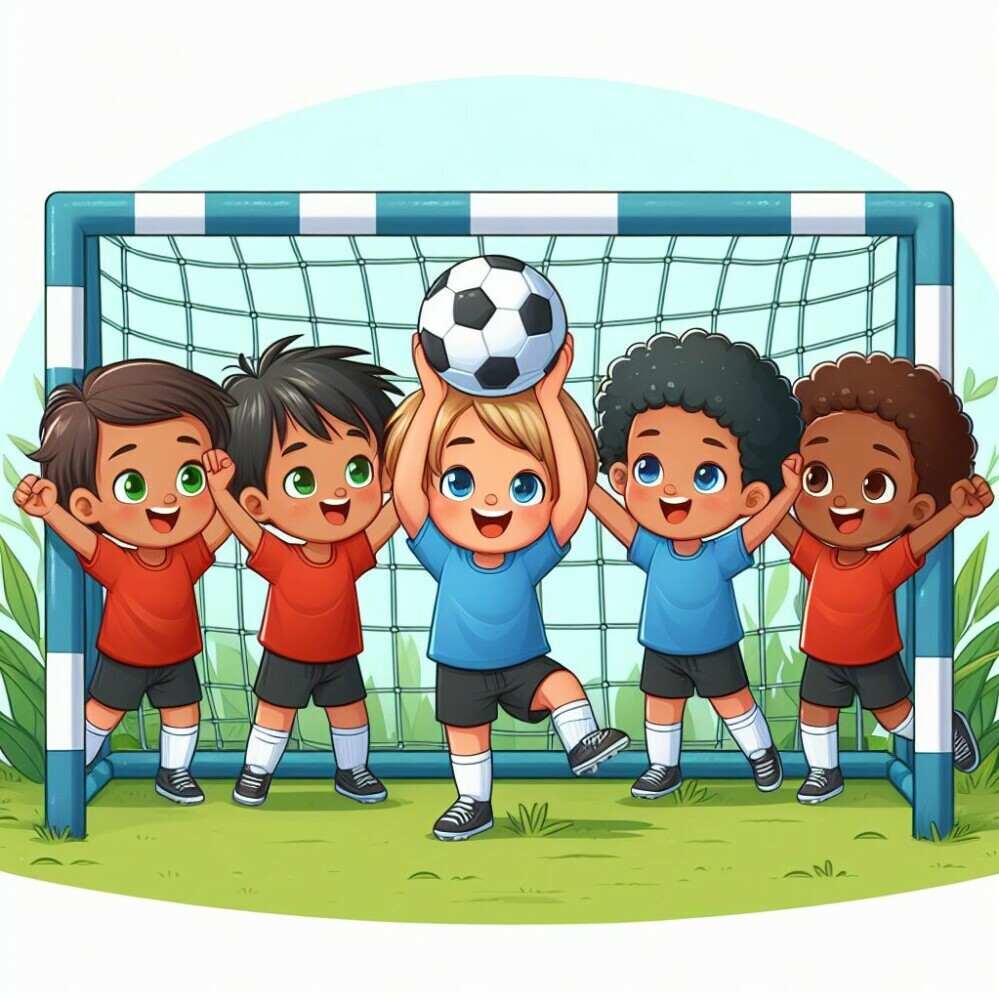Let’s talk about why it’s crucial for kids to set goals. It’s not just about giving them a to-do list; it’s about helping them develop essential skills they’ll use throughout their lives. Goal setting for kids can nurture their ability to plan, stay organized, and feel confident in their abilities to achieve their dreams.
Now, independence might seem like a big word for children, but that’s going to include nurturing their decision-making skills, and what better way to do that than through goal setting? When kids choose their own goals, they’re taking the driver’s seat in their personal development journey, learning to trust themselves in the process.
their decision-making skills, and what better way to do that than through goal setting? When kids choose their own goals, they’re taking the driver’s seat in their personal development journey, learning to trust themselves in the process.
Here’s the tricky part, though — not all goals are created equal, especially when we’re talking about children. This means you’ll need to help them understand the difference between a goal that’s within reach and one that’s a little too far into the clouds. It’s about striking a balance between challenging them and ensuring the goals don’t lead to frustration or a sense of defeat.
I’m here to help you with that. As a parent or guardian, your role is key. You’re not just a cheerleader; you’re a guide. This involves showing them the ropes of good goal setting and being there to support them as they try, stumble, and eventually, soar.
With this foundation in place, you’re probably wondering how to apply these principles to something concrete, something that’s both fun and a learning experience. Well, that’s soccer. Let’s talk about how introducing kids to soccer goals can kick-start their practice of goal setting in a way that’s engaging and full of valuable life lessons. Stay tuned because your child’s next goal might just earn them a winning spot in more ways than one.
Introducing Kids to Soccer Goals
Let’s talk soccer. It’s more than just kicking a ball; it’s a platform for development. When you introduce a child to soccer goals, you’re opening a door to so much more than sports. It’s a learning experience that transcends the field.
Here’s the thing: sports goals are about physical health, sure, but they also shape a child’s mind. Setting goals in soccer teaches critical thinking, decision-making, persistence, and even emotional regulation. These are skills your kids will use for life.
You might be wondering what soccer goals look like for different age groups. For little ones, it might be as simple as ‘kick the ball toward the goal.’ As they grow, the goals evolve, like ‘learn to pass accurately’ or ‘develop better ball control’.
But how do we create that supportive soccer environment? It starts with you, the parent. Be their biggest fan and their gentle coach. Encourage every dribble and pass, and remind them that it’s not about the goals scored, but the effort they put in.
Now, this support is going to dovetail nicely into how you can help them set and achieve these soccer goals. We’re talking strategies that will not only apply on the field but also instill life lessons that carry well beyond the sound of the final whistle.
Strategies for Kids to Set and Achieve Soccer Goals
So, you’ve got a budding soccer star at home, and you’re excited to nurture that passion. Setting goals is vital, but the real magic happens in the pursuit. Meaningful goal-setting is about more than just choosing an objective; it’s about laying down a roadmap.
Enter the world of S.M.A.R.T goals – a concept you can tailor-fit to young athletes. Specific, Measurable, Achievable, Relevant, and Time-bound goals tune into the heartbeat of what makes soccer practice meaningful.
What happens when things don’t go as planned? That’s where lessons in persistence and resilience come into play. You’re teaching your child that it’s alright to miss a shot as long as they get back up and keep playing.
Appreciate the journey by setting incremental milestones. Have your child aim for smaller, achievable goals, like mastering a new dribble or improving their passing accuracy. This isn’t just about reaching a big milestone; it’s about celebrating the small steps along the way.
To keep the momentum, use tools like progress charts or goal-tracking apps. Visual aids can be especially helpful, as they provide a tangible reminder of what your child is working toward. And of course, keep it fun. Remember, the ultimate goal is to enjoy the game.
Transitioning into celebrating your child’s victories, know that the joy of accomplishment isn’t always about the win. It’s also about recognizing the hard work, determination, and improvement, whether at home or on the field. It’s about shared moments of pride and hugs after the game.
Celebrating Success: Sharing Joy in Your Child’s Achievements
I’m here to help you with the rewarding part of parenting—celebrating your child’s success. When your kid reaches a soccer goal, it’s not just about the achievement; it’s about acknowledging their hard work and perseverance. This recognition is crucial for their self-esteem and encourages them to set new goals.
 In my opinion, it’s essential to celebrate both the small victories and the larger milestones. Did your child master a new dribbling technique? Or perhaps they scored their first goal in a match? Each of these moments deserves recognition. Choose something that resonates with you and your child—maybe a special family dinner, a ritual high-five, or a fun outing.
In my opinion, it’s essential to celebrate both the small victories and the larger milestones. Did your child master a new dribbling technique? Or perhaps they scored their first goal in a match? Each of these moments deserves recognition. Choose something that resonates with you and your child—maybe a special family dinner, a ritual high-five, or a fun outing.
There’s a lot of opportunity in shared experiences to build stronger family bonds. Attending your child’s soccer games, practicing together, or simply having a post-match chat can all be part of the celebration. It’s these moments that matter, creating lasting memories and reinforcing the joy of achievement.
Remember, your first attempt at celebrating doesn’t need to be your last. You can always adjust your approach down the road. What works once may need tweaking as your child grows and their goals evolve. Just don’t focus too much on perfection—what’s important is the genuine pride and happiness you share with your child.
I really hope that you come away from this article feeling prepared to support and revel in your child’s soccer successes. After all, the journey you experience together is as significant as the goals achieved. So, the next time your little champion makes that game-changing play, be ready to cheer them on and mark the occasion—it’s a win for them and for you!
FREE COLORING PAGE DOWNLOAD




